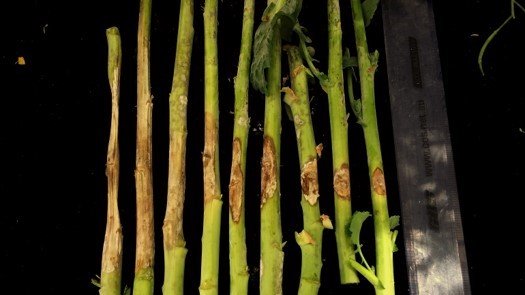Planting quality seed is the best insurance
BackSourcing planting seed produced and conditioned (cleaning and grading) under a quality assurance (QA) scheme is the most effective approach and best insurance for growers for all crops.
The benefits of professional seed production schemes are most significant in small seed and broadleaf crops including canola and many types of pasture species. For hybrid crops, the decision is simple because first generation seed can only be sourced through seed companies that follow such quality management processes.
Examples of the quality management processes developed and the commitment to deliver Pioneer® brand seed products include:
- Commercial seed is produced by contracted specialist growers using best practices and expertise delivered from our dedicated and trained production agronomists
- Seed production paddocks are identified in areas ‘isolated’ from, or having low levels of, Sclerotinia (in canola) or other fungal diseases and known weed history
- Specialist cleaning and grading equipment operated by professionals
- In-house seed quality testing from harvesting to bagging of seed covering germination, physical, trait and genetic purity using ISTA methods and global protocols
- Commercial Seed for planting in each State is also tested through an independent ISTA accredited laboratory to meet State quarantine requirements
- In addition to planting seed quality, in-house testing includes end-use product quality such as canola oil analysis to meet industry trading standards. Using retained grain for planting without quality testing is likely to create and/or increase risks at grain delivery (rejection/downgrading/loss of price premiums) and damage the reputation of Australian grain in export markets
The research teams at Pioneer conduct yield testing field trials across Australia (including all States) and screen hybrids in-season for agronomic characteristics and disease assessment compared to industry commercial products as benchmarks.

Variability in screening results for sclerotinia in canola
This information is used for advancement decisions of commercial products, selection of protective seed treatments and recommendation of customized agronomic packages.
Canola management supports quality seed investment
In addition to using quality planting seed, there are a range of other management techniques that can also be effective in reducing the impact of Sclerotinia in canola crops, including:
- Planning crop rotations using non-host break crops, such as winter cereals and summer crops (forage/grain sorghum, corn) on high risk paddocks
- Extend the interval between successive canola crops from two years to four years in high risks growing zones for disease and/or resistant weed populations
- Avoiding planting canola on or downwind of paddocks that have had high Sclerotinia levels in the past three years
- Using recommended canola sowing dates and rates for the district and that matches the phenology (time and duration of flowering) of the canola cultivar
- Having foliar fungicides on-hand, closely track seasonal conditions favourable for fungal infection and target application at the optimum flowering stage (20-30 per cent flowering or 50 per cent flowering when epidemics are late). A second fungicide application has shown significant benefits in protecting yield potential in high-yielding crops
GA0623-02A
Your Seed is backed by
local experience
With dedicated and highly skilled team members located throughout Australia you can be sure of accessing the best local knowledge to help you maximise your investment in Pioneer® brand hybrid seed. Get in touch with your local Territory Sales Manager or Farm Services Consultant today.
